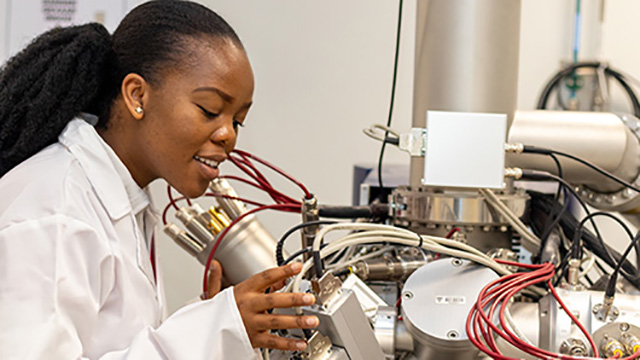Groundbreaking nanotechnology research institute at Rhodes University launches new state-of-the-art building

“A conduit for collaboration and cutting-edge research produced in excellence.” This is how students have described Rhodes University’s Tebello Nyokong Institute for Nanotechnology Innovation (TN-INI). The pioneering research facility, which has already cemented its role as a driving force in Africa’s scientific development, will unveil its brand-new custom-designed building on 03 December 2024. The new […]

